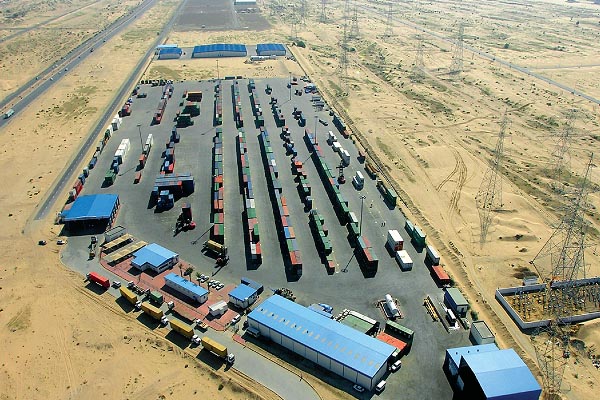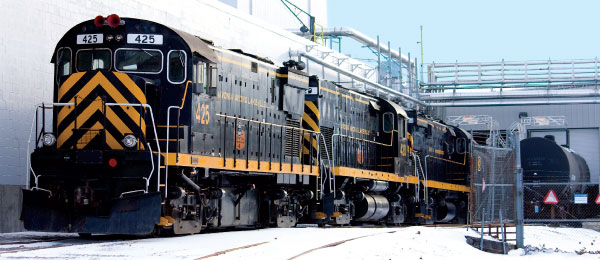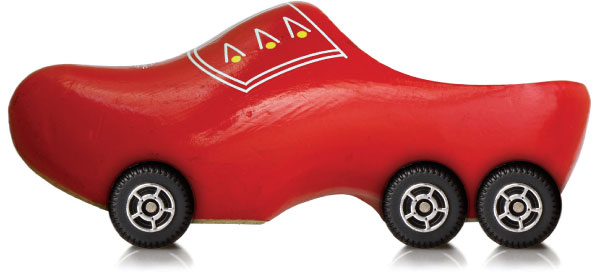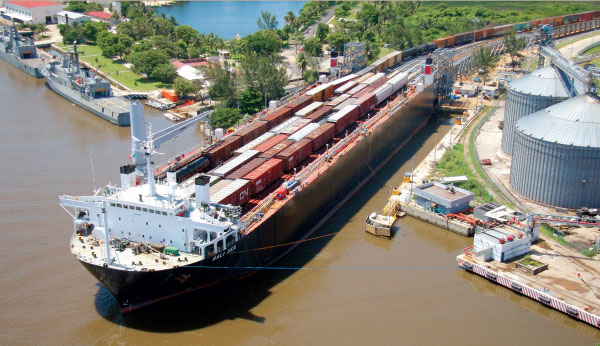Articles
News

Global Logistics—February 2010
Middle East Logistics Heads North The Middle East’s express, freight forwarding, and logistics sectors are expected to weather a global depression and experience considerable growth during the coming years, according to Middle East Transport and Logistics 2010, a new report from Transport Intelligence, a Wiltshire, U.K.-based research firm. Despite recent problems in Dubai, foundations are […]
Read More
Trends—February 2010
The Little Railroad That Did Small railroad communities used to be widespread across the United States. Rural transportation and commerce were railroad-tied, each dependent on the other. In western New York towns such as Livonia, the past was very much aligned with the tracks. So is its future, thanks to a little foresight and determination. […]
Read More
Global Logistics—January 2010
Dutch Centrism: If the Clog Fits… Given its accessible location and proximity to two of the world’s great port cities—Amsterdam and Rotterdam—the Netherlands has historically been a center of commerce and trade. A new study, High Quality, Competitive Costs: Benchmarking the Netherlands as a Gateway to Europe, suggests the country’s reputation for cargo distribution—in terms […]
Read More
Trends—January 2010
Guaging the Future of Marine Rail Rail intermodal solutions have become an important component of the U.S. supply chain as capacity, cost, and sustainability concerns warrant more transportation flexibility. The hitch for shippers is the time it takes to re-handle cargo, switch modes, and turn assets and inventory. Rail intermodal requires better forecasts, greater visibility, […]
Read MoreGlobal Logistics—December 2009
Electronics Manufacturing Switches Current Outsourcing manufacturing to China remains a viable strategy for many global companies. But the country’s developing economy, expanding consumer base, rising labor costs—and increasing global competition—has some industries reconsidering where they source product. Labor costs, total landed costs, and insourcing by original equipment manufacturers (OEMs) are slowing the migration of high-tech […]
Read MoreTrends
Pacer International and Union Pacific (UP) have entered a multi-year arrangement that allows the intermodal company continued access to the railroad’s network. That’s welcome news to some rail users. Foremost, the announcement puts to rest speculation about the company’s tenuous financial position. Pacer will use the $30-million cash infusion received as part of the deal […]
Read MoreGlobal Logistics—November 2009
Wagons West Chinas New Reckoning Sometimes adversity yields opportunity. When a major earthquake struck China’s Sichuan Province in May 2008, its magnitude was incomprehensible: 70,000 people killed, many more displaced, and widespread annihilation of infrastructure and socio-economic wellbeing. But a landscape literally wasted by nature is now quaking and awakening with the tremors of a […]
Read MoreTrends-November 2009
The green movement is many things to different parties. But the common element all environmentally conscious supply chain practitioners and consumers should take a vested interest in is transparency—from source to self. Environmental watchdog Greenpeace, whose mission is to bring clarity to environmental issues and threats, knows something about transparency. Proof to point, the organization […]
Read MoreGlobal Logistics—October 2009
Rotterdam Rules Inch Forward Most trade conventions come and go. Others linger. When 15 countries, including the United States, ratified the Rotterdam Rules recently in the Dutch port city, the new UN maritime convention updated global standards for transporting ocean cargo initially laid out in The Hague Rules (1924), the Hague-Visby Rules (1968), and the […]
Read MoreTrends-October 2009
Shippers and service providers have enough difficulty meeting customer demand despite encroaching time, service, and cost constraints without political bureaucracy getting in the way. But it does. Pitched battles over quality of life and the goods that bring quality to life are frequent and fervent—and serve as yet another reminder that domestic transportation policy and […]
Read More